“ONCE your heart is in Ukraine, that’s it. Leaving is tough – like leaving your family behind at a difficult time.”
Town councillor and former mayor of Liskeard Simon Cassidy is speaking of the deep connection he’s made with the people of twin town Kopychyntsi.
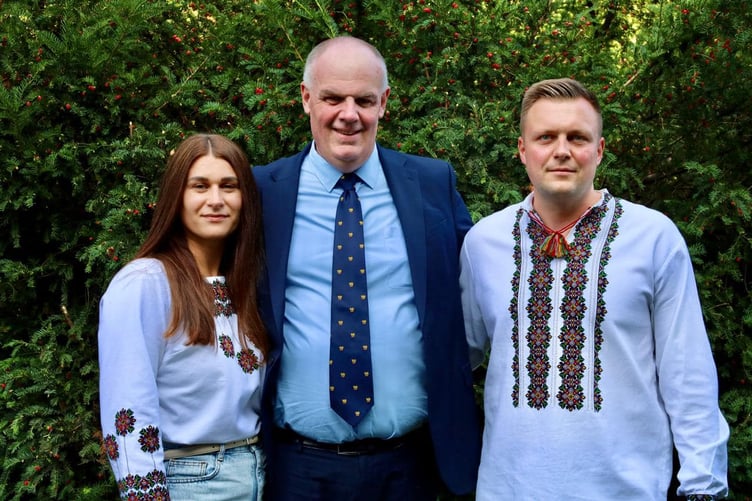
Simon has so far made seven trips accompanying aid convoys to support Ukraine. Recently he into travelled into Ukraine itself to meet with mayor of Kopychyntsi Bogdan Kelichavyi, and spend a week getting to know the town and its people as well as volunteering in their community.
Ukraine is not that far away from us, he explains: its westernmost city Lviv, recently targeted by Russian airstrikes, is 1200 miles from the UK and just 30 miles from the border with Poland.
After Russia’s invasion in 2022, Liskeard was one of many places to show solidarity with Ukraine and to help in welcoming those being hosted by families in Cornwall.
The connection was strengthened after Simon became involved with the Callington-based organisation Cornwall and Devon Sending Love to Ukraine, which has now delivered its 200th van loads of aid.
“Going out as part of the humanitarian effort was what got me more and more involved,” he says.
“In Liskeard we had already started working on how we could establish a link with a town in Ukraine. And once your heart is there, that’s it. You’ve got the buzz of delivering aid, but then you’re faced with what people there have to deal with – just a little bit of it – and it’s heartbreaking. I’ve come back and cried myself to sleep. It’s thinking about your next trip back that keeps you going.”
In December 2023, Liskeard and Kopychyntsi made their twinning agreement official. Having made a flying visit of just a few short hours in April, Simon had promised to return.
“This time I got to meet lots of organisations and explore a lot more. I was able to visit the junior and secondary schools and meet some of their teachers, the railway station – which is manned by a husband and wife team – the fire station, churches, and museum, which celebrates the town’s strong tradition of theatre.”
At the community centre, Simon met with members of the local choir as they practised songs in English ahead of a live linked concert with Liskeard.
“Kopychyntsi is a very beautiful part of the world, and the town has a very strong sense of community. It’s a good match for us.”
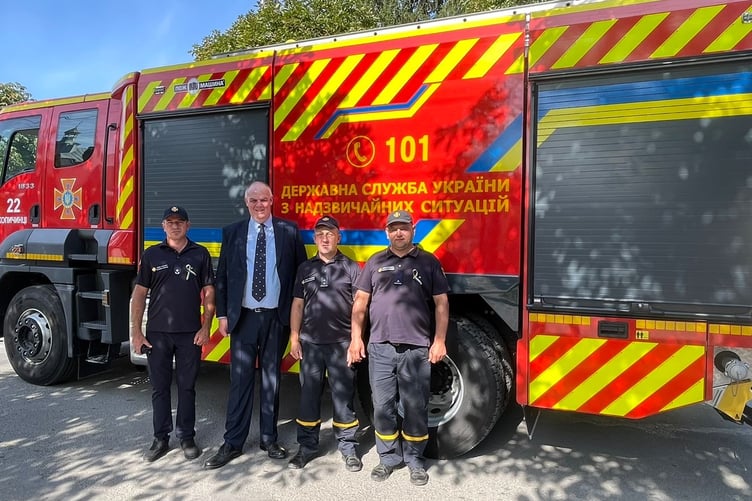
News of the war in Ukraine has largely faded from our headlines and perhaps from our consciousness, says Simon.
“There’s a perception that western Ukraine is not as affected by the war, but there has been a huge impact on essential infrastructure, and on people’s lives.
“The most important thing for me was spending time with Ukrainian families, hearing from them about what they feel and what their issues are. On first impressions there’s a kind of Blitz spirit: people say they want to get on with their lives, because otherwise Russia has won. But when you look into their eyes, it’s then you see the pain and the suffering, then it gets to you.”
Kopychyntsi has lost 24 young men to the fighting and countless are missing. The latest to be killed in action was just 23 years old, and recently engaged to be married.
“It was hard to leave – I didn’t want to leave, I wanted to do as much as I could to help them.”
Simon, once a train driver and now a consultant in the UK rail industry, is a representative of the Global Ukrainian Rail Task Force. It was in this capacity that he left Kopychyntsi for Kyiv, journeying on the overnight sleeper train, sharing a carriage and stories with Ukrainian people returning home from studies or visits to family in Poland.
“First and foremost, the task force provides technical assistance and expertise to the Ukrainian railway sector, but it also raises money to support railway workers.
“It’s currently providing body armour for railway employees. The railworkers are known as the “Iron People of Ukraine”. They’re first on the scene, after the armed forces, following air strikes. They work all hours of day and night and put their own lives on the line to repair damaged track and equipment.”
Simon arrived into Kyiv at the start of one of the heaviest onslaughts from Russian air attack of this year.
“I was taken into a subway station and from there to the basement of a cafe being used as a bunker, where I had breakfast with representatives of the Ukrainian railway.
“We got to the basement and then the lights started to dim and you could hear the explosions up above. The floorboards rattled and dust started to come through. The children began crying. It’s then it really hits you what they go through.”
Simon’s three nights in the capital were all spent underground in air raid shelters.
“I was scared stiff, terrified, thinking about my kids, but at the same time realising this is what the people that live here go through every night.”
At the city’s main railway station, large ornate waiting rooms double up as welfare stations for those coming back from the front line.
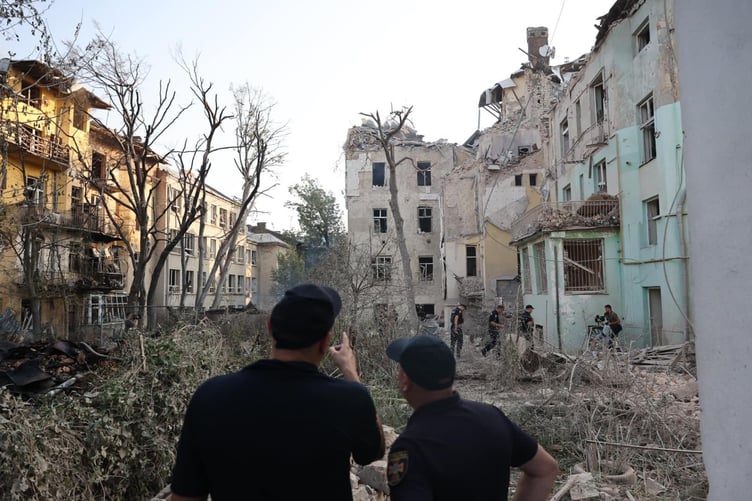
An image from Simon’s last few moments in Kyiv haunts him.
“The evening was beautiful with the sun setting. For a moment you could have been in Paris or Berlin. But turn and you see a line of 50 vehicles, waiting for the train returning from the front line. Ambulances, waiting to pick up the severely injured; and hearses, to collect the bodies off the train.”
Having used up all of his annual leave and much of his savings to journey to Ukraine over the past nine months, Simon is now focusing on what he can do from here in the UK whilst raising money for more trips.
On a local level, he’s encouraging schools and groups in his home town to reach out if they’d like to connect with groups in Kopychyntsi. It doesn’t have to involve a lot, he says: just knowing that they’ve got people who think about them and care about them means the world to people.
On a wider level, Simon has been inspired by the work of the Rail Task Force, and by the collaborative work between European towns and cities highlighted during his April trip to the International Summit of Mayors in Moldova.
He is working with the EU, UK government and Ukraine to see if there are more ways in which help can be offered.
Simon is proud of Liskeard for being one of the first and few towns in the UK to twin with a place in Ukraine, and he encourages more to follow suit.
At a recent Liskeard Unlocked event Simon led the Melodi Liskerret Choir in singing the Ukrainian national anthem via video link to Ukraine
“Hearing us singing their national anthem during our event in Liskeard would have meant much more to the people of Kopychyntsi than people here probably realise. To know that there are people here who keep them in their hearts and minds means everything to them.”
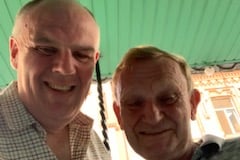

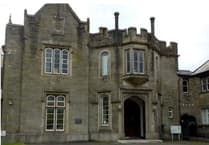
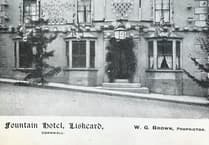
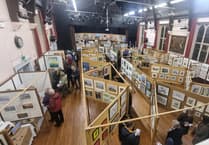
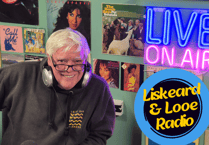
Comments
This article has no comments yet. Be the first to leave a comment.